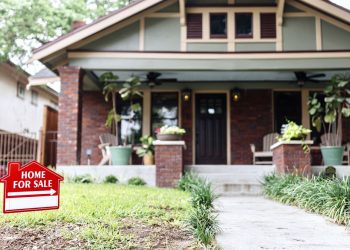By Michael Donovan
RISMEDIA, May 22, 2007-Historically, economic development and conservation have been at odds. According to the Equestrian Land Conservation Resource (ELCR), since 2000, 13 million acres of rural land has been converted into subdivisions, shopping malls, workplaces, roads, parking lots and resorts. That’s more than the land mass of Rhode Island, Delaware, Connecticut and New Jersey combined.
From a purely conservationist view, this is not welcome news. But, given the recent population growth – the U.S. population passed the 300 million mark this year — it is expected. The economic principle of supply and demand from our ever-growing population has put pressure on regions for increased development.
Instead of a growing conflict between conservation and development, a new dialogue has emerged. Thanks to a blend of technological advances, implementation of new sustainability principles and a market demand for more eco-friendly development, new answers are surfacing to a growing problem: where will we put everyone in such a way that we can remain good stewards of our communities, land and resources?
Many builders and developers are turning to the growing demand for sustainable designs through a new market – the equestrian community. Through vision, effective planning, and leadership, more building industry members are seeing that conservation and development can be managed and transformed by building communities around the horse enthusiast.
Equestrian communities maximize the use of the natural environment for the developer, builder and the horse lover. All parties can gain access to land that otherwise might not have been available – except as part of an equestrian community.
For one, the building industry will find that many jurisdictions consider the equestrian amenity portion of the equestrian community as agricultural use. This designation can provide tax and lot-density benefits. One example of this is the ability to use areas designated as “Open Space” for horse pasture. Similarly, acreage allocated to the equestrian amenity often is not included in developed-area calculations. Both of these examples allow “greater” development to take place on constrained properties, making them more profitable.
Many developers also find increased public appreciation and acceptance due to the sustainable practices that naturally evolve in an equestrian community.
These practices include reserving large tracts of open space for pasture, cross country courses and creating and maintaining quality trails for riding. Wildlife corridors, proper pasture rest and rotation practices, water reclamation, erosion and run-off management and maintaining the highest possible safety and health standards for the horses and their riders also are all part of the culture of sustainability required by an effectively planned equestrian community.
Equestrian communities also require less earthmoving and other “land manipulation” techniques than typically seen with golf communities and other recreational residential developments. Developers will find significantly less tree removal is required, and far fewer chemicals needed to maintain an equestrian amenity than a golf course. For example, rather than the heavy chemical use required to maintain golf-quality turf, a properly prepared pasture area is kept appropriately weed-free with one or two seasonal mowings and the regular grazing of the horses
Other sustainable practices, including using Leadership in Energy and Environmental Design (LEED) certified designs along with LEED-certified or recycled materials, also are often considered in equestrian community design. Fence materials, stall and aisle flooring and barn siding are all available in high-quality LEED-certified or recycled materials.
A significant percentage of home buyers that choose to live in equestrian communities will never be seen on the back of a horse – and that is just the way they want it. They – and the active equestrian participant – are drawn to the quality of life offered by these developments. Often called “new ruralism,” it provides an often highly sophisticated personal living environment (elaborate master bedroom suites, gourmet kitchens, smart, wireless-networked homes) in a pastoral setting with easy access to services traditionally found in a neighborhood. These specially-designed communities provide an opportunity for residents to enjoy horses (theirs or their neighbor’s) on their terms and with the level of interaction they want. That interaction spans the gamut from simply viewing horses at liberty in a pasture or being ridden in one of the communities riding venues to boarding their horse at the community facility to providing all of their horse’s care at the private barn on their property.
Furthermore, the minimally disturbed or manipulated nature of these sites strongly appeals to many people’s desire to live in a less contrived, natural setting. Effectively designed trails will preserve and highlight the areas of exceptional natural beauty on the property. This feature and the ability for hikers and riders to generally coexist on the community’s trails are in stark contrast to most golf communities (where hikers are welcome only during non-golf hours).
An equestrian community that has conscientiously embraced these principals is The Oaks of Lake City, a current Equestrian Services, LLC project in Lake City, FL. Situated on a 1,222 acre site, The Oaks includes a central equestrian amenity on more than 75 acres with more than 260 additional acres preserved for equestrian parks, containing over 15 miles of looped trails. The 236 home sites have been planned to maximize view corridors and provide a sense of open space. This project will serve the economic goals of the developers and bring employment and economic dollars to the community, but also preserve open space for riding, wildlife and outdoor enjoyment. This project — a win-win proposition – is providing a high quality living experience for its equestrian and non-equestrian residents alike.
More than two million people own the 9.2 million horses in the United States, and another two million people are involved as equestrian volunteers or engaged in the equestrian lifestyle through family affiliations. But, they also are experiencing decreasing options for managing and enjoying their horses. Developers and resort owners who investigate equestrian amenities will find a new amenity market – and new possibilities for tapping into the sustainability concept.
For more information, visit http://www.theoakslakecity.com/.
Michael Donovan is a Principal of Equestrian Services, LLC (Charlottesville, VA), which provides turn-key equestrian amenities for communities and resorts throughout the United States.
This article is reprinted with permission from Equestrian Services LLC, May 2007.










